National Turkey Federation Statement on CDC Investigation of Salmonella Reading
Washington, D.C.
The Centers for Disease Control and Prevention (CDC) posted an update today to their investigation announced in July into multistate illnesses attributed to Salmonella Reading. Epidemiologic evidence suggests raw turkey products and raw turkey pet food are possible sources. No specific product, brand, facility or company has been linked to the illnesses, nor is the CDC recommending consumers stop eating any turkey products.
The National Turkey Federation (NTF) released the following statement on the investigation:
“Food safety is a top priority for the turkey industry, and we take great pride in providing safe, nutritious and delicious food for consumers. Although NTF members work diligently to prevent foodborne bacteria on their farms and in processing, it is well known that bacteria are naturally present in the environment. As a result, raw meat and poultry products may contain bacteria. That is why proper handling and preparation of raw foods – including cooking turkey to 165°F – is so important for consumers to know, understand and follow.
“No turkey products are being recalled in association with this investigation. The CDC is not recommending consumers avoid turkey products and is reminding consumers to practice safe food handling and cooking procedures. The U.S Department of Agriculture (USDA) and NTF recommend properly cooking poultry to an internal temperature of 165°F, as measured by a food thermometer. As with all fresh meat and produce, consumers should wash their hands and cooking utensils thoroughly, avoid cross contamination with other foods, cook meat to the proper internal temperature and refrigerate products promptly to prevent foodborne illness.
“The turkey industry is cooperating fully with the CDC and the USDA in their ongoing investigation. Since the investigation was announced in July, NTF members have taken an active approach to help mitigate the impacts of Salmonella. Our members have individually reviewed their Salmonella control programs in all phases of turkey production and are working collectively through NTF to address this and all strains of Salmonella. The intense focus of our membership on this issue has allowed the industry to further strengthen guidelines for biosecurity and food safety.
“For consumers, the bottom line is that all turkey is safe when properly cooked and handled, and that turkey producers and processors are continually working to make them even safer. The turkey industry remains committed to reducing Salmonella and continuing to explore scientific and technological innovations that would help control naturally occurring pathogens in food products.”
More details about the investigation can be found on the CDC’s website at https://www.cdc.gov/salmonella/outbreaks.html. Consumers looking for safe food handling information can visit www.eatturkey.com, Fight Bac! or USDA’s Ask Karen.
